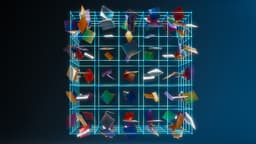Theoretical Computer Science: Unlocking the Secrets of Computation
Theoretical Computer Science is a discipline that investigates the fundamental principles of computation. It focuses on the theoretical aspects of algorithms, data structures, and the limits of computation. This field is crucial for understanding computation and influences various areas of computer science and technology.
Understanding the Foundations
What are the foundational questions in theoretical computer science? This field seeks to answer critical inquiries about computation. It examines the mathematical foundations of algorithms, assessing their efficiency, correctness, and limitations. The field includes several key topics:
-
Algorithmic Complexity Theory: This branch analyzes and classifies the efficiency of algorithms. It seeks to determine the resources needed, such as time and space, to resolve computational problems.
-
Automata Theory: Automata theory studies abstract machines or models of computation. It explores the capabilities and limitations of various computational models, including finite automata, pushdown automata, and Turing machines.
P versus NP Problem
What is the significance of the P versus NP problem? It is one of the most renowned unsolved problems in theoretical computer science. This problem asks whether every problem that can be verified quickly (in polynomial time) can also be solved quickly (again, in polynomial time). The resolution of this problem could have enormous implications for fields like cryptography, optimization, and AI.
Computational Complexity
What does computational complexity theory teach us? This theory focuses on understanding the inherent difficulty of solving computational problems. It classifies problems into complexity classes based on the resources needed to solve them. One well-known complexity class is NP (nondeterministic polynomial time), encompassing problems that can be quickly verified, but whose solutions may not be efficiently found.
Theoretical computer science is vital for shaping our comprehension of computation. It lays the groundwork for creating efficient algorithms, analyzing computational limits, and exploring what can be achieved with computers. Through concepts such as algorithmic complexity theory and automata theory, researchers continue to illuminate the field of computation and contribute to future technological advancements.












